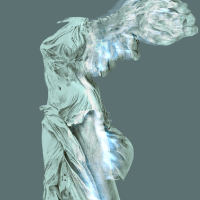
Copyright law protects a work from the time it is created in a fixed form. A fixed form can cover many things such as: a sound recording, print, manuscript, software, DVD any tangible concrete medium.
Once the work is in its fixed form, the author or those deriving rights from the author can claim copyright.
The owner of the copyright can sometimes be passed onto someone else in the form of “works made for hire”, which is defined by the Copyright Act as:
“a work prepared by an employee within the scope of his or her employment, OR, a work specially ordered or commissioned for use as; a contribution to a collective work, as a part of a motion picture or other audiovisual work, as a translation, as a supplementary work, as a compilation, as an instructional text, as a test, as an answer material for a test, or as an atlas…if the parties expressly agree in written instrument signed by them that the work shall be considered a work made for hire.”
In a works made for hire situation, an employer is considered the author and owner of the copyright even if an employee actually created the work. When we speak of employer, it can mean an individual or an organization/firm.
So with this in mind, a newspaper what hires someone to write articles or design comic sketches, is the owner of that work. The same is the case if someone is hired to create music for a film, or software for a company. Of course, taking the newspaper example, the newspaper must mention who the creator of the piece was in recognition of the original creator, but the rights belong to the newspaper. This would not be such a clear-cut case if it were an independent contractor who produced the comic strip designs. In the case of an Independent contractor, it would depend if the work was “specially ordered or commissioned” and if there was a specific written agreement specifying that the work is a work made for hire. In general, the court will examine the case based on the categories listed above in the definition.
As the concept can be complicated, it is important a clear legal agreement is drafted that determines where the rights will stand, and if there will be any assignment of such rights to other parties. Consultation with a legal counsel is advisable to make sure that any misunderstandings are avoided and that all parties involved are content.
If a work is not a work made for hire, how long does the copyright last?
Usually the copyright belongs to the owner for his/her lifetime PLUS seventy years.
A works made for hire copyright lasts around ninety-five years from the date of publication or 120 years from the date of creation, whichever expires first.
As mentioned above, it is up to the courts to fully evaluate if the conditions determined in the definition of a ‘works made for hire’ have been fulfilled, it is therefore important you get the correct advice and clear contract drafting from your legal counsel.













